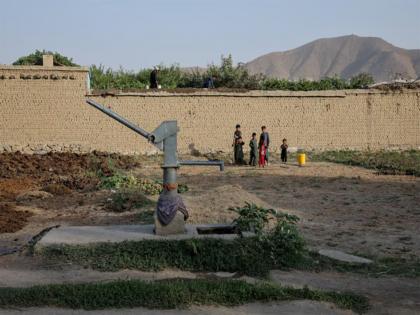Kabul residents face severe water shortages, call for urgent action
By ANI | Updated: October 3, 2025 22:45 IST2025-10-03T22:44:55+5:302025-10-03T22:45:04+5:30
Kabul [Afghanistan], October 3 : Residents of Kabul's District 5 have raised alarm over a worsening water crisis, complaining ...

Kabul residents face severe water shortages, call for urgent action
Kabul [Afghanistan], October 3 : Residents of Kabul's District 5 have raised alarm over a worsening water crisis, complaining that they lack daily access to clean drinking water, Tolo News reported.
Locals said dug wells have dried up and government-supplied pipelines are providing water only intermittently.
Several parts of the Afghan capital are currently facing shortages, according to the report.
Naveed Rahman, a resident of District 5, told Tolo News: "Government-supplied water comes through the pipes only two to three times a week, and people are struggling with water shortages."
Another resident, Mohammad Mokhtar, echoed the concern. "In District 5 of Kabul city, we are facing severe water shortages and cannot meet our needs with such a limited supply," he said.
Residents have urged the authorities to intervene and find lasting solutions.
Mohammad Tawheed, another resident of District 5, told Tolo News: "We have vast water resources in our country, including underground water. If these are properly managed, the water shortage problem can be solved."
Experts have also warned that if the crisis continues, it could seriously affect public health and food security.
They underlined the need for urgent water management projects, deep-well drilling and stronger distribution networks.
Hamidullah Yalani, former head of the water supply authority, told Tolo News: "Unless drinking water is brought into Kabul from the north through Panjshir and Sayad and from the south via the Lalandar River and unless Kabul's water infrastructure is rebuilt and upgraded, the issue of safe drinking water in the city will not be resolved."
International organisations have reported that Kabul's underground water levels have fallen by up to 30 meters in the past decade.
Experts warn that if this trend continues, the capital's groundwater resources could be completely depleted by 2030.
Disclaimer: This post has been auto-published from an agency feed without any modifications to the text and has not been reviewed by an editor
Open in app